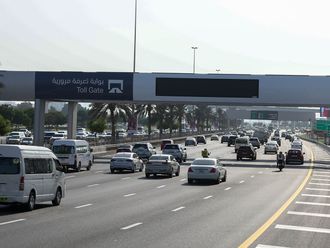Bahrain-based investment firm Arcapita swung to a profit in its fiscal year ended June 30, it said yesterday, helped mainly by multiple exits or disposals of assets in its investment portfolio. The Islamic investment firm recorded net income of $50.2 million (Dh184.3 million) compared with a loss of $560 million for the year before. Arcapita said it completed seven full and partial exits during the year, returning about $1 billion to the firm and its shareholders. The company was badly hit by the crisis as it struggled to exit its investments due to global investment woes and its fee income from raising fresh funds in the Gulf Arab region collapsed. Arcapita, whose total assets stood at $3.7 billion on June 30, raised $435 million from its investment in property firm Mapletree Industrial Trust last year and sold a portfolio of senior living communities in the United States for $630 million in early 2011.
HayatCom
Kuwait-based telecom infrastructure developer Hayat Communications or HayatCom said yesterday Ali Al Ostath has stepped down from his position as chief executive. HayatCom's board has accepted the resignation, the company said in a statement posted on the Kuwait bourse website. It didn't give a reason for Ostath's departure or any further details. The company's shares ended flat at 0.099 Kuwaiti dinar ($0.36) in an overall positive market yesterday.
Saudi Telecom
Saudi Telecom Co has launched next generation long-term evolution (LTE) network services in the kingdom, the former monopoly said in a statement yesterday, as the battle intensifies for data customers The move follows a similar announcement from rival Etihad Etisalat (Mobily) a day earlier, with both carriers claiming to be the first in the Middle East to roll out LTE, or 4G. LTE promises download speeds more than double that of 3G and is designed for data, rather than voice. Saudi's mobile penetration is 188 per cent — the third-highest in the world — so mobile data and internet are likely to be operators' main revenue drivers as subscriber growth stagnates, spurring the race to roll out LTE. Between them, STC and Mobily account for more than 80 per cent of Saudi's mobile subscribers, with indebted Zain Saudia a distant third.
Nakheel
Nakheel said challenging market conditions could result in further declines in asset values, while its response to, and the government's ability to address the country's flagging real estate industry, can't be assured, according to documents seen by Zawya Dow Jones. "Adverse conditions in the real estate sector continued throughout 2009 and 2010 and remain current in 2011. Should these adverse conditions persist for a prolonged period, they could exacerbate the adverse effects that have already been manifested in property values and rental rates in the retail and residential markets in which the Nakheel Group operates," Nakheel said in its sukuk prospectus sent to investors last month. Last year, Nakheel trade creditors were offered repayment through a mix of 40 per cent cash and 60 pre cent via sukuk as part of the company's complex restructuring, which involved aggregate debt of Dh59 billion. Nakheel has yet to list the first tranche of its Dh4.8 billion Islamic bond, or sukuk, on the Nasdaq Dubai after issuing it to trade creditors late last month.
Egyptian firms
Egypt's public sector companies sold petroleum products worth about 31 billion Egyptian pounds ($5.21 billion) in fiscal year 2010-2011, Cairo-based Al Ahram daily reported yesterday citing Abdullah Ghorab, the country's minister of petroleum and mineral resources. Egypt's fiscal year 2010-2011 ended on June 30. Ghorab called on the two local petroleum products distributors Misr Petroleum, or MPC, and Cooperative Petroleum, to expand their distribution outlets in rural areas, the paper reports. MPC's annual sales grew ten per cent year on year to 19.2 billion pounds in fiscal year 2010-2011, Yahia Shanan, the company's chairman, said according to the daily. Mohammad Attiah, the chairman of the Cooperative Petroleum, said his company's revenue rose by 800 million pounds to 12.4 billion pounds in fiscal year 2010-2011.












